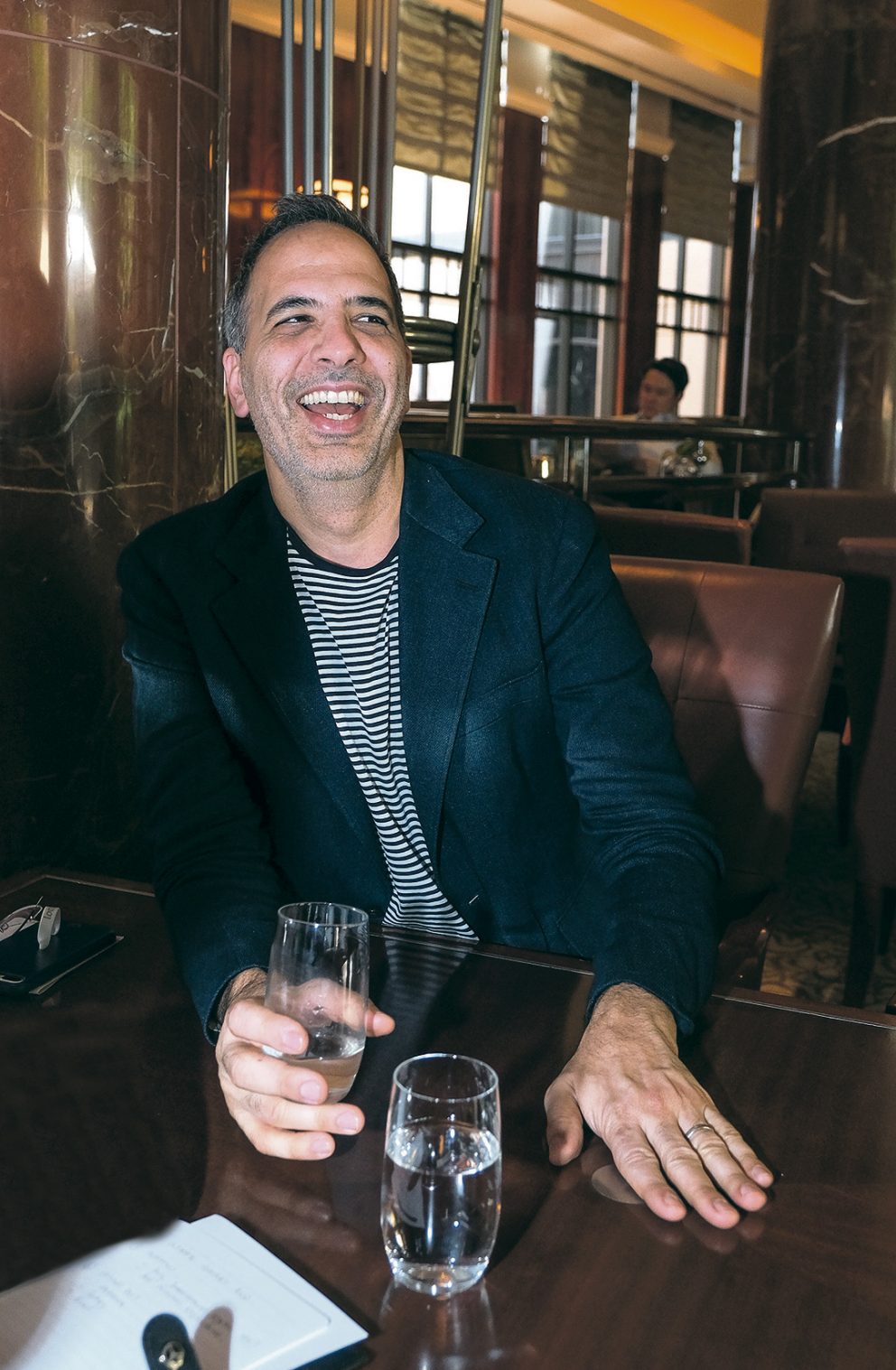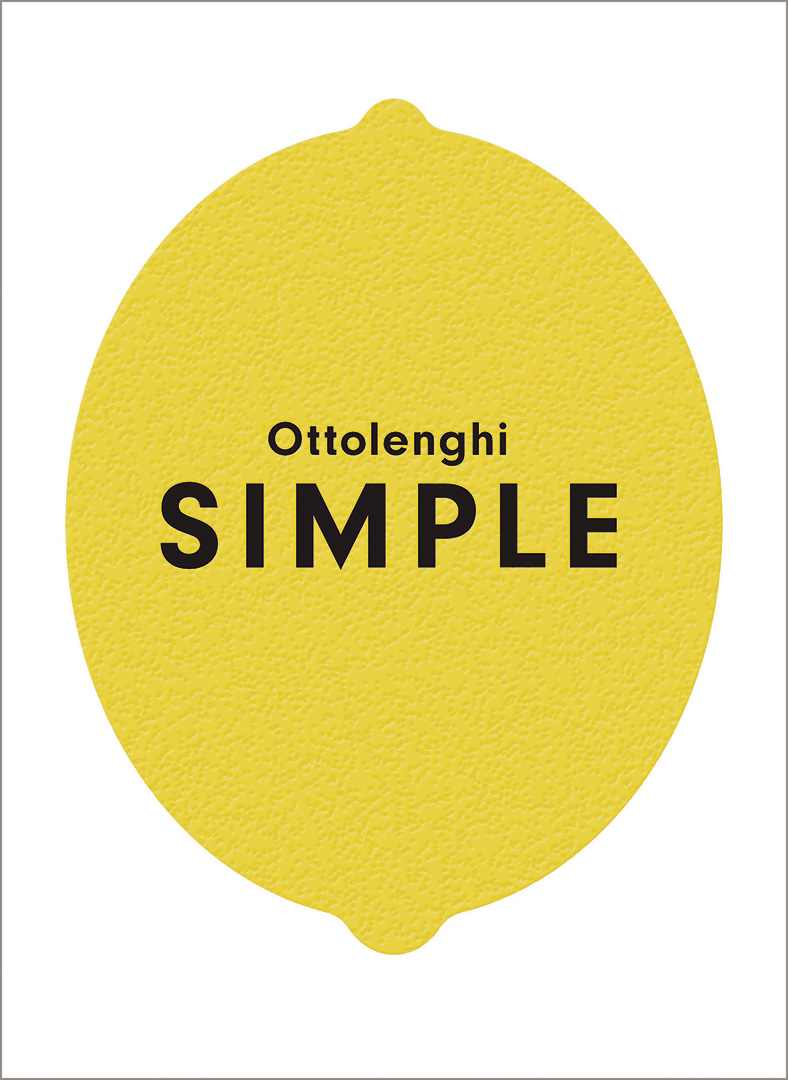Simply Ottolenghi
Yotam Ottolenghi is a world renowned chef, restaurateur and food author. While visiting Australia earlier this month, he mused on his Jerusalem upbringing, family recipes and the food that has inspired him with Rebecca Davis.
Yotam Ottolenghi is a world renowned chef, restaurateur and food author. While visiting Australia earlier this month, he mused on his Jerusalem upbringing, family recipes and the food that has inspired him with Rebecca Davis.
The heady scent of Jericho oranges is a childhood memory which captivates Yotam Ottolenghi. It transports him back to a different time – a time when he, his father, and brother would pedal their bicycles on an ancient path once trod by merchants, pilgrims and shepherds. Together they would make the winding descent from the lofty heights of Jerusalem to the depths of Jericho.
“We would go and we would sit around in Jericho. I remember the smell of the oranges. They were so intense because it’s really hot and humid,” evokes Yotam as we chat in the lobby of a Melbourne hotel.
“There was bougainvillea and other flowers there, and we would eat roasted lamb and mezze together.”
“Then my mum would come with the car. We would load our bikes in the back and go home. You cannot ride up that hill – it would be impossible!” he adds with a laugh.
Chef Yotam Ottolenghi has enjoyed worldwide success as the result of his well-loved cookbooks, television series and UK restaurants. He visited Australia earlier this month for a series of events in Melbourne, Sydney, Brisbane and Tasmania where he shared his journey live on stage before packed audiences.
“The Sydney Opera House was one of the most incredible things that I have ever done. I was just awestruck. First of all, I have never been before such a large audience. It was 2500 people. I don’t really get these numbers outside of Australia!” he exclaims in bemusement.
Yotam embodies a type of universality that is easily embraced. His easygoing nature translates into effortless dishes, and it is a style that resonates with Australians with his bowls of plenty beckoning to be shared, brimming with the latest seasonal produce, meat encased with lashings of pomegranate molasses, drizzlings of tahini, tum- blings of figs, generous glugs of rosewater.
And he may just be solely responsible for bringing the spices za’atar and sumac into the mainstream (Thank you, Yotam).
But it was in his native Israel where his appreciation and adoration for food began.
“We didn’t have very Jewish food at home because we come from these slightly more obscure Jewish diasporas,” Yotam shares.
His father was born in Florence, Italy and escaped just before the war; while his mother’s heritage is German-Jewish.
“We ate very Italian food – lots of polenta, and pasta, and antipasti style things.”
“So, in that respect, it wasn’t very traditional, typical Jerusalem cuisine – but that’s also very typical of Jerusalem cuisine – because there are so many people and some of them are from very small Jewish communities, each one making their own,” he says.
It is a concept that Yotam explores in his 2012 cookbook, Jerusalem, which he co-authored with Palestinian fellow chef and business partner, Sami Tamimi.
“It is impossible to count the number of cultures and sub-cultures residing in this city. Jerusalem is an intricate, convoluted mosaic of peoples,” they wrote.
And it is diverse – the disparate traditions of the city’s Jews hailing from every corner of the world are encapsulated within the bowls that sit atop their tables.
Take Pesach at the “very secular” Ottolenghi household. The chag was synonymous with Yotam’s Nonna Luciana’s dish of polpettone, he tells, an Italian meat-loaf-style dish of minced beef, with whole boiled eggs, pistachios and gherkins, rolled in a towel, simmered in stock and later served cold, topped with salsa verde.
“It was our Passover coldcut, just so delicious. And because it had no wheat, it was kosher,” says Yotam as a smile creeps across his warm face.
In contrast, the Italian dish sat alongside the essential and ultimate Ashkenazi bowl of comfort.
“There was always a matzah ball soup, that’s what we always had,” Yotam recalls.
“And my grandmother made a very nice charoset. It was really good, because she used a lot of dates, and a lot of cinnamon,” he shares, describing how she would dot the symbolic mortar with pine nuts “like a hedgehog”.
But it was also the food offerings out of the house which allured a young Yotam as he discovered exotic Kurdish kibbeh or Jerusalem mixed grill dishes that he devoured at little restaurants hidden in the laneways close to the Machane Yehuda shuk.
“I just feel that all these flavours – at the public places we used to go to, the restaurants in East Jerusalem and at home – created that whole world of food that I had growing up. So it wasn’t really any one thing, it was everything coming together. It was very eclectic.”
Following his military service, Yotam moved to Tel Aviv to study philosophy and literature at Tel Aviv University. During this time, he lived near Shuk Ha’Carmel, the forever pulsating market at the intersection of Allenby and King George Streets.
“This is when I got into cooking,” he reveals.
“I used to go to the shuk to buy ingredients for the weekend. I remember this cheese stall, and they used to sell everything, from the young cheeses, Bulgarian cheese and Feta. Some were creamy, some were salty and I would make beautiful salads with them.”
“I also used to make a lot of different types of meatballs with all the herbs and spices that I could get in the market,” he adds.
With an abundance of fresh ingredients at his fingertips, Yotam’s weekends became opportunities to host dinner parties.
“I was pretty good at it, and I really enjoyed doing it. I also enjoyed the shopping, the going to the markets, and putting the whole thing together.
“I really enjoyed feeding people. I knew that I loved that experience of feeding.”
When he eventually finished his Masters, Yotam contemplated a career in academia – but something held him back.
“It felt a bit sterile and away from the real world. I just felt like I wanted to do something a bit more real and a little bit more physical and out there.”
This is when he decided to go to London and take a course at Le Cordon Bleu culinary school. It was the first time that he figured he might actually be able to turn cooking into a career.
“I really enjoyed the physicality of cooking, looking at people’s joy after feeding them. It is deeply gratifying and that feeling is something that swayed me to stay in cooking.”
The change of career path was not without its challenges, particularly as Yotam was nudging 30 years old.
“But I thought that if I don’t do this now, I’ll never do it.”
“I had a great time – a hard time – but a great time, and I really enjoyed the whole process of putting food together, especially when I got a bit of creative freedom and was allowed to do my own thing.”
Twenty years later, Yotam remains in London near his four delicatessens and two restaurants. He married Karl Allen in 2010 and the couple have two young sons. They live close to London’s Jewish Museum, where Yotam took their boys for Chanukah activities last year.
Hailing from Northern Ireland, Karl has added another layer of diversity to their table.
“He does really good British home cooking, like shepherd’s pie and casseroles. I miss those when I am away,” tells Yotam.
But when he returns to Israel to visit his parents, the first stop he makes after leaving the airport is to eat the food that mesmerised him as a teenager and lured him away from the protection of the western side of Jerusalem.
“I always stop in Abu Ghosh and get my fix of Arabic food. I get my kibbeh and hummus and baba ghanoush.”
And then it is back to the market – where it all began – and the halva stand.
“I would get one with pistachios or with almonds. I love those flavours. I have white bread spread with butter and halva on top.
“Oh my God, it is beyond delicious.”
Ottolenghi Simple is published by Penguin and is available at good bookshops.




comments